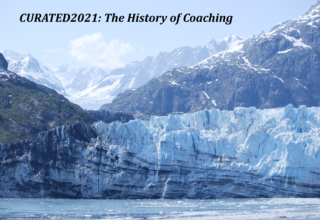
When whole societies begin to see with new eyes, existing assumptions come into question, the old equilibrium breaks down, and the resulting chaos provides fertile ground for new fields and practices. Such a shift is not easy to see while we are still in it and requires pattern recognition over a broad range of developments. From this perspective, the systemic shift can be seen as the story of how coaching came into being. This story is told in this article as a set of shifts in a series of responses to questions about human identity, behavior, and relationships.
The new paradigm does not completely replace the old. As we have pointed out throughout this paper, fields that are thoroughly steeped in mechanistic assumptions, such as behaviorism, nonetheless have made significant contributions to coaching. Yet if mechanistic modes of inquiry and practice had been adequate at the end of the 20th century, there would have been no need for coaching. Medical and psychological change agents tended to approach human problems separate from their social context. Individuals are divided into physical and mental, work and personal, spiritual and material, each with different professional attendants. In contrast, coaches are trained fundamentally to think differently-to think systemically. If we look at the column on the systemic side of the mechanistic to systemic shift in Table 1, we see the following characteristics: complexity, dynamic stability, subjectivity, potentiating, and collaboration. This in fact provides a good description of coaching. Coaches are comfortable with the properties of emergence and embeddedness that characterize complexity theory. They take a holistic perspective, attend to the subjective experience of clients, assume their capacity to potentiate, and use an egalitarian, collaborative rather than a directive approach.
Not only does the systemic paradigm apply to what coaches do and how they do it, it applies to how we determine the evidence base for that practice. Most of us look to scientific evidence to confirm what we accept as true, but across all disciplines, scientific inquiry has undergone a shift. Science is still as rigorous as ever, but now we listen to people’s subjective experience; we are more likely to take context into account, rather than limiting our view to the individual; we recognize that people actively create meaning in their lives; and we focus on strengths and values as the crucial resources for change. Systematic inquiry arising from this shift is beginning to provide evidence that confirms the value of coaching.
Coaching has arisen as a unique embodiment of the systemic paradigm, inheriting aspects of but basically unencumbered by mechanism. As coaching research and theories accumulate, the discipline of coaching will take shape as a contribution to a new way of understanding and behaving in the world. Specifically, organizational coaching has the potential to help us “learn from the future as it emerges.” Scharmer (2009) suggests that this is necessary if organizations are to meet the leadership challenge of inventing not just new solutions to complex problems, but new approaches to problem-solving itself. “How,” he asks, “do we reinvent our institutions as the ground under our feet is being pulled away?” (p. 112) Because it is less burdened by mechanistic assumptions, coaching may also help society navigate the three global revolutions that Scharmer cites: economic interconnection, communications networking, and “… the development of new forms of individual and collective consciousness” (ibid.).
However, the challenge remains to actually establish in practice a theoretical and evidence base for coaching that is distinct and coherent enough to justify calling it a new discipline rather than relying on existing disciplines to make room for coaching. What will propel coaches in general and organizational coaches in particular to meet this challenge?
Download Article 1K Club

















